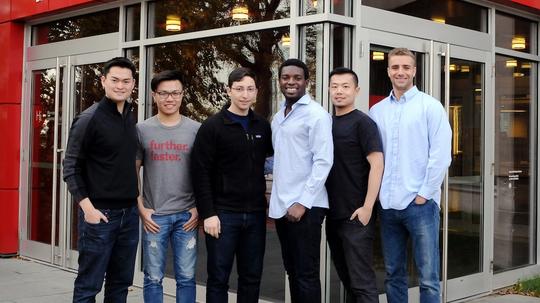
Imagine a stack of documents that need to be reviewed. And another. And another. Instead of paying a contract attorney to navigate the papers, companies and law firms now have a second option: they can delegate the job to a software (and, hopefully, let legal professionals do more meaningful tasks, instead of cutting their jobs).
A company in the Harvard Innovation Labs' batch, Evisort, is developing a series of algorithms that are meant to "organize, categorize, and draw insights" out of legal contracts, as their pitch says. Formed by four law students from Harvard, two data scientists from MIT and two computer scientists from Northeastern University, the company launched almost a year ago and currently has eight employees.
The core of the Evisort software is Artificial Intelligence (A.I.), which is now the go-to technology (combined with machine learning) to automate any kind of time-consuming task, from analyzing samples of body tissues to assigning priority to emails. As for legal services, the next evolutionary frontier is automated contracts, as Gabe Teninbaum, a professor at Suffolk Law School, said to WBUR.
Currently, Evisort provides six A.I.-powered modules that can extrapolate the contents and the meaning of 24 types of contracts. "Fundamentally, it's a search tool: it's basically Google for contracts," Jerry Ting, Evisort co-founder and CEO, said in an interview.
Potential customers of Evisort are accountants, executives, salespeople, HR professionals and lawyers. Specifically, customers can use the software to understand if they're complying with the contracts they've signed, such as "master service agreements." According to Ting, companies get sued all the time for not doing what they agreed to.
"Fundamentally, it's a search tool: it's basically Google for contracts."
Before going to Harvard Law, Ting worked as part of the sales team at Yelp in downtown San Francisco. While helping to expand the presence of Yelp in the Toronto and Canadian market, Ting said he learned how to work with business partners and that that experience shaped his expectations about the kind of lawyer he wanted to be.
"I really thought I was going to become a startup attorney," Ting said. "What I quickly realized is that companies don't know what's in their contracts... and that's where the idea came, to help people organize the data that's inside their companies."








